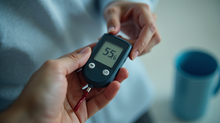Diabetes and Dawn Phenomenon
- Maureen Sullivan RN CEN CDE
- Jul 26, 2015
- 2 min read

Diabetes is a chronic, yet manageable medical condition. The goal is control of blood glucose ( blood sugar) levels so as to reduce the risk of complications. Although many factors can affect a glucose level ( diet, activity, stress, infection, to name a few), persons with diabetes (PWD) should be aware of a condition called “the Dawn Phenomenon” as a possible factor affecting morning blood sugar levels.
The dawn phenomenon is a natural occurrence. It is an increase of hormones that occurs in the body, usually in the early hours of the morning ( 0200-0800 a.m.). These hormones may include growth hormones, cortisol, glucagon and epinephrine. In a person with diabetes , these hormones may affect insulin resistance, and result in elevated morning glucose levels.
There are many areas to explore when possibly dealing with the dawn phenomenon. First of all, keeping a food /activity journal will enable the PWD to keep accurate count of carbohydrate intake, in relationship to medications and activity. Are medications being taken too early/too late and thus not fully affecting the morning glucose level? Are late night snacks overriding the effects of medication, leading to elevated glucose levels? Is the lack of activity perhaps impacting the breakdown of glucose in the evening meal, resulting in elevated morning glucose levels?
There are several things a PWD can do to positively affect their glucose level, with regards to a possible dawn phenomenon. Keep meal intake times routine, and eat your evening meal early enough to still do some form of activity afterwards. (No eating dinner, and going straight to bed). Take your medications as prescribed, in relationship to your meal times. Check your blood sugars and track them in a log book. Your physician may even ask you take check your blood sugar during your normal sleep times, to see if a change in occurring in the middle of your sleep cycle.
Upon confirmation that the dawn phenomenon is occurring, your healthcare provider has options to correct your elevated glucose levels. These options may include changes in insulin brands as well as doses- the aim is to find a longer acting insulin whose “peak” will coincide with your elevated blood sugar level. It may also be as simple as changing the time you take your evening diabetes medication and a bit more stringency of late night carbohydrate consumption. Finally, others have placed PWD on insulin pumps, which can be programmed more easily to accommodate the fluctuations in blood sugar levels.
As you can see, a little detective work on your part and the underlying problem with elevated morning glucose levels can be addressed. #Education= #Empowerment
Additional reference sites for more information:
http://www.diabetes.org/living-with-diabetes/treatment-and-care/blood-glucose-control/dawn-phenomenon.html
http://www.webmd.com/diabetes/morning-high-blood-sugar-levels
http://www.mayoclinic.org/diseases-conditions/diabetes/expert-answers/dawn-effect/faq-20057937



































Comments